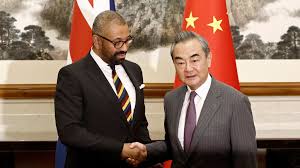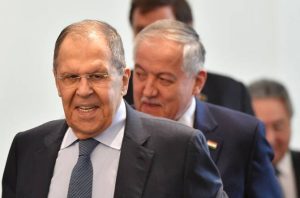UK’s next government must redefine its confused relationship with China

London: For the UK’s Conservative government ‘ambivalence’ has been the watchword in how to manage relations with Beijing. Yet in seeking to balance concerns about security, a desire to align with the US, and pressure to engage economically, the UK government has ended up with a muddled approach to relations with China.
The election on 4 July offers an opportunity for the incoming government to inject more clarity into the relationship, which is at its lowest ebb for many years.
A UK prime minister has not visited Beijing for almost six years – something the next prime minister should aim to change sooner rather than later. This could be an opportunity to recalibrate the UK’s relations with the world’s second-largest economy – even if such a reset might not be according to China’s wishes.
The incoming prime minister should at least define the challenge and more importantly, prepare to meet it with a robust and practical policy.
‘Epoch-defining challenge’ is how the UK has viewed China and its ruling communist party in recent years. The phrase reflects the UK government’s strong desire to balance its economic ties with Beijing on the one hand with increasing geopolitical concerns and alignment with US thinking on the other. The incoming prime minister should at least define the challenge and more importantly, prepare to meet it with a robust and practical policy.
For London, a major dilemma to date has been managing the competing wishes of those who support better business ties with China (including selected government departments and FTSE-100 companies) alongside the many back-bench members of parliament from all parties who are suspicious of Chinese intentions.
The incoming British government must become more skilful at operating across both perspectives, avoiding the pitfalls of allowing in-fighting within political parties to affect official policy on China.
China remains perplexed by the UK’s Brexit vote and the succession of short-lived prime ministers since the country left the European Union.
Beijing will therefore re-evaluate its relationship with London and possibly the longevity and real authority of the next British prime minister, largely depending on the parliamentary majority that emerges from this election.
However, with weaker than expected prospects for growth, China has a renewed impetus for engaging with European nations economically – despite the various ongoing trade disputes and Beijing’s position on the war in Ukraine.
Major EU member states, as well as Brussels, are clear about their intentions to ‘de-risk’ – that is, move investments and supply chains away from China.
Yet both President Emmanuel Macron of France and Chancellor Olaf Scholz of Germany manage to engage with China in a more sustainable manner, even if economic and political irritants exist in both countries’ relations with Beijing.
By contrast, the UK government sticks to tough rhetoric in its policy, while its dealings with China lack any practical ‘terms and conditions’.
For Beijing diplomacy is mostly based on a confluence of interests rather than a relentless pursuit of likeminded-ness.
Unlike France and Germany, the UK has made ‘shared values’ with the US an indispensable part of its foreign policy, ranging from the ‘special relationship’ to the ‘tilt to the Indo-Pacific’. As a result, the UK and China have frequently clashed on issues such as human rights, Hong Kong and Russia’s invasion of Ukraine.
For Beijing (and many countries from the Global South with which the UK has attempted to engage) diplomacy is mostly based on a confluence of interests rather than a relentless pursuit of likeminded-ness – something the UK and other NATO countries may struggle to understand.
The incoming UK government must better acknowledge this cognitive dissonance in diplomacy. It must decide policies based on a realistic appraisal of Beijing’s perspective, not on what is seen as accepted among the UK’s allies.
This is not to say that the UK should give up long-cherished values when conducting diplomacy with non-Western countries. But its approach needs to be considerably more sophisticated to be effective in engaging with non-Western states.





